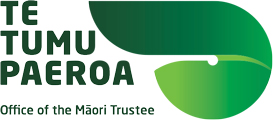Income from your whenua
Sometimes whenua can be used to generate income for the trust. Income opportunities can depend on the whenua’s location, size and current state.
Sometimes the trust order specifies how the land must be used, such as for agriculture or horticulture purposes.
The responsible trustee of a Māori Land Trust is responsible for the proper administration and management of the business of the trust and the collection and distribution of the income of the trust.
This not only includes paying trust expenses such as trust administration costs but also making payments for such things as:
- Investment in the whenua – such as necessary capital works like replacing a fence or water pump or wool shed that has come to the end of its economic life
- Using the income to ensure the whenua is meeting legal compliance requirements, such as waterway protection.
We can work with trustees and owners to identify opportunities for transforming or enhancing their whenua – find out more.
What if there is money left over?
Trust reserves include moneys that the trust does not need to meet current expenses.
The trust order may restrict or specify how the responsible trustee can use trust reserves, but commonly trust orders permit the trustees to declare a distribution (a payment) to owners and allow for other types of payments such as kaumātua grants and grants for community purposes, such as marae support.
Sometimes reserves are accumulated for a specific purpose, such as a major capital development of the whenua, or the purchase of an expensive but important asset for the trust.
Depending on the priorities of the trust, the responsible trustee may decide that reserves will not be used in this period for other purposes.
Trust distributions to owners
If the trust order permits trust distributions and the responsible trustees of your trust decide to make a trust distribution to owners, they must follow any specific requirements in the trust order regarding making distributions.
The amount of your share of the distribution will depend on how many shares you have in the trust compared to all other shareholders. For example, if you hold 10% of the shares you will generally be entitled to 10% of the post-tax distribution made by the trust.
If we administer your trust as responsible trustee or agent, your share of the trust distribution will be credited to your owners account with the Māori Trustee Common Fund and we will pay this money out to you – along with any other money we may be holding in your Common Fund account – if we have your payment details.
We currently manage over 100,000 owner accounts in the Common Fund.
Distributable income
If you're an owner in land we administer as trustee or agent you will have a Common Fund account with us.
All account holders with balances in the Common Fund receive a share of the investment income earned from our investment of the money held in the Common Fund – the amount shared by Common Fund account holders is known as distributable income.
The Māori Trustee Act 1953 and the Māori Trustee Regulations 2009 set out the rules for how distributable income is calculated. In broad terms, management fees for our management of the Common Fund are deducted from the income earned by the Common Fund investments in a month and the balance is shared amongst all account holders based on the balance of each account on the 30th day of the month. For example, if on the 30th day of the month the balance of your Common Fund account with us represented 1% of the total of all balances of accounts in the Common Fund, then your account would receive 1% of the available distributable income.
The Māori Trustee Regulations 2009 permits the Māori Trustee to charge a reasonable management fee for management of the Common Fund. The current base management fee is 0.75% of the market value of the Common Fund and is charged to the Common Fund.
Recent tax changes
Recent changes to the IRD non-declaration resident withholding tax (RWT) rate mean clients and whānau trusts need to advise us of their IRD number and RWT rate so they can be taxed on investment income (distributable income) in line with New Zealand tax legislation. This information can be updated in My Whenua or you can contact us.
What is the process for making payments to owners?
If you're an owner of a trust we administer as trustee or agent and that trust has made a trust distribution to owners, we'll credit your share of the trust distribution into your Common Fund account.
We will pay this to you together with any other money we may be holding in your Common Fund account, less tax or other expenses we must withhold or which are payable.
This is provided we hold your payment details and the balance exceeds our minimum payment threshold of $2.00NZD.
Once a year we send owners a tax certificate if they have received any investment income (distributable income) into their Common Fund account.
Are we holding any funds for you?
To find out if we are holding any funds for you or a member of your whānau, you can check our records here.
To ensure you can receive any funds you may be entitled to and statements from us, we need up-to-date bank account information and contact details.
We also need your IRD number and in some cases your resident withholding tax (RWT) rate. This information will help ensure you are taxed at the correct rate on any income you or your whānau trust earns.
If you need to update your details, you can do this here.
